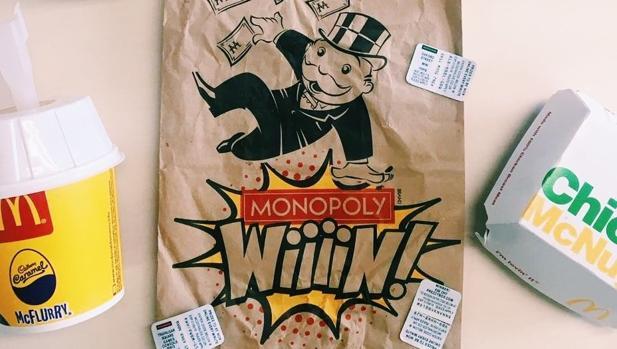On August 3, 2001, a McDonald's filming team reached the bustling coastal city of Westerly, Rhode Island.They took their cameras and a giant cash check to a row of houses, and knocked on the door of Michael Hoover.The 56 -year -old single had called a direct McDonald's line to say that he had won his monopoly competition.Since 1987, McDonald's customers had feverishly collected monopoly games attached to drinks of beverages, fries packages and advertising inserts in magazines.When completing property groups such as Baltic and Mediterranean Avenues, the players earned cash or a Sega Game Gear, while the pieces of the game "Instant Win" obtained a free fillet-o-fish or a vacation in Jamaica in Jamaica.But Hoover, a Casino Pit chief who had recently declared himself in bankruptcy, said he had won the Grand Prize: $ 1 million.
Just like winning the Powerball, Hoover's probabilities were 1 to 250 million.There were two ways to win the Monopoly Grand Prix: Find the game "win instantly" as HOOVER, or join Park Place with the elusive Boardwalk to choose from a sum to such taxes or a $ 50,000 check every year for 20 years.Like the Monopoly board game, which was invented as a warning about the destructive nature of greed, players exchanged pieces of the game to win, or overcome others on eBay.Armed thieves even assaulted restaurants demanding monopoly tickets."Do not go to jail! Go to McDonald's and play the real monopoly!" Rich Uncle Pennybags shouted, the mustum pet of the game, in television commercials that sent customers to gather to buy more food.Monopoly quickly became the most lucrative marketing device of the company from Happy Meal.
Inside the house of Hoover, Amy Murray, a faithful spokesman for McDonald's, encouraged him to tell the camera about the fortunate moment of his life.Nervous grabbing his huge check, Hoover said he had fallen asleep on the beach.When he leaned to wash the sand, his magazine People fell into the sea.He bought another copy of a grocery store, he said, and inside there was an advertising insertion with the game of the game "Instant Prize".The camera team patiently listened to its history wandering, silently recognizing the inconsistent details found in the stories told by liars.They suspected that Hoover was not a lucky winner, but part of a great criminal conspiracy to disappoint the fast food chain of millions of dollars.The two men behind the camera were not from McDonald's.They were undercover FBI agents.

This was a mcsting.
In the FBI Jacksonville field office in Florida, the special agent Richard Dent added Hoover's video to his growing test battery.With long and very organized hair, Dent was a 13 -year -old veteran from the office, who spent his days investigating public corruption and bank fraud.But in the last 12 months his desk had filled with fast food paraphernalia.The brochures to "choose your prize monopoly" and "Who wants to be a millionaire?"They described the McDonald's games played in 14 countries.He read small print that revealed how the probabilities against the client were stacked: McDonald's makes a piece of each set of properties extremely rare, so while thousands have three of the four railways, the chances of pulling the short -line railway and winningA PT Cruise: It was 1 in 150 million.
Jeff Maysh
Dent's investigation had begun in 2000, when a mysterious informant called the FBI and said that McDonald's games had been manipulated by an inmate known as "Uncle Jerry".The person revealed that the "winners" paid several pieces to Uncle Jerry for stolen pieces of the game.The $ 1 million winners, for example, passed the first share of $ 50,000 to Uncle Jerry in cash.Sometimes Uncle Jerry demanded cash in advance, which required the winners to mortgage their homes to get the money.According to the informant, members of a very united family in Jacksonville had claimed three $ 1 million awards and a Dodge Viper.
When Dent alerted McDonald's headquarters in Oak Brook, Illinois, executives were deeply worried.The company's main lawyers pledged to help the FBI and sent a list of previous winners by fax to dent.They explained that their play pieces were produced by a Los Angeles company, Simon Marketing, and printed by Dittler Brothers in Oakwood, Georgia, a firm that trusted the printing of postal stamps and lotteries.The person in charge of the game's pieces was Simon's Security Director, Jerry Jacobson.


